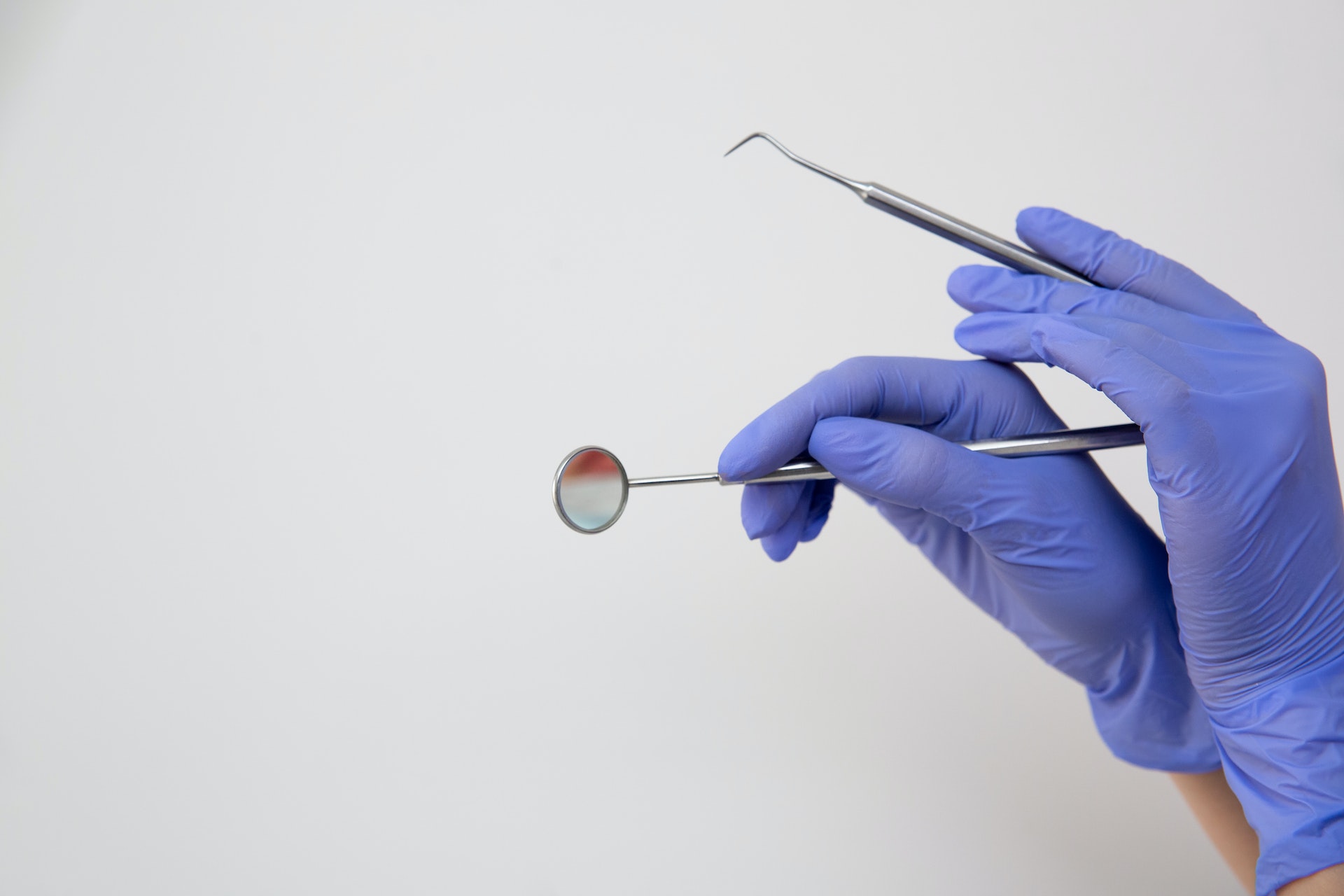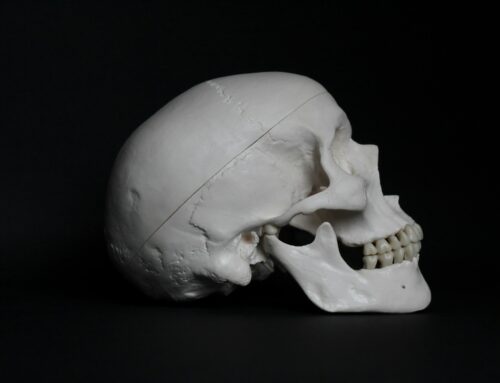Attending the dentist can be a troubling experience for many, with fear and anxiety common feelings. But there are some useful ways of lessening these feelings, which will hopefully result in a better experience at a dental clinic. Being prepared and knowledgeable are among the recommended steps to take according to experts. The aim is for dental clinics to not be seen as places to fear.
It is very normal to feel anxious when attending a dental appointment. Whether it is for a routine check-up, or a treatment such as a cavity filling, it is common to feel nervous.
But in reality, there really is no need to be scared – dental procedures have become very advanced, and normally result in positive treatment outcomes.
Now, Dr. Maria Papageorge – Head of the Department of Oral and Maxillofacial Surgery at Tufts University School of Dental Medicine – has spoken about ways of avoiding dental anxiety [1].
The problem of dental fear
As mentioned, dental fear is very common. In fact, approximately 36% of the population are believed to have a form of dental anxiety or fear [2].
But sometimes, dental fear will result in a person avoiding the dentist altogether. This sadly makes their problems worse. Therefore, when they do finally seek treatment, the procedure will be more difficult, and so the cycle continues.
Avoiding the dentist is also known to result in self-esteem and psychological issues due to the appearance of teeth. Generally, quality of life also suffers [3]. Evidently, there are many problems with avoiding the dentist.
The importance of being prepared
Dr. Papageorge is a big supporter of the idea that patients should be well-informed and knowledgeable when it comes to treatment.
Papageorge says that she tells her patients that “the more you know, the better it’s going to be” [1]. Therefore, preparation is important.
Continuing, she remarks that “as health professionals, we’re not trying to scare patients with information; it’s just that when you’re prepared for something, when you know what’s going to happen, it reduces the anxiety level, and it goes more smoothly” [1].
Ask questions
One of the best ways of easing fears and anxieties is to ask any questions that you may have to the dentist. They will be happy to assist.
Papageorge says that dental professionals “have the experience of having seen many patients going through similar procedures; we know what their postoperative course is, and we can relay this information to the patient effectively [1].
By asking questions, it can help to put you at ease, and give you more knowledge too. This combination is important, and should result in less dental fear.
Talk to others
Talking to others who have had similar dental experiences can also be helpful. Often, others will be able to reassure you that what they went through wasn’t as bad as they were expecting.
The chances are that they were in a similar position – where they were dreading visiting the dentist. However, they will hopefully now look back and wonder why they were feeling that way.
Dr. Papageorge suggests that specifically asking about postoperative care can also be helpful [1]. For more extensive surgeries, talking to others can result in the person having “reassurance from a real person” [1].
Think of recovery
Many dental procedures require a person just to leave their mouth alone for a few hours whilst their filling or implant moulds into the mouth.
But sometimes, longer recovery times are needed. Regardless of recovery time, Papageorge suggests that being prepared for recovery is important.
She has said that “what patients can eat after is a very important question” [1]. Some procedures will require “a diet of soft foods for some period of time” [1].
But the key is to know ahead of time. Papageorge says that “it can be comforting for patients to know they have the necessary items at home and ready to go” [1].
Moreover, Papageorge also points to having a plan for transport both before and after treatment. For example, Papageorge says that “if you’re having sedation or general anesthesia, you can’t eat or drink anything for six to eight hours prior to surgery. Afterward, you can’t drive for 24 hours” [1].
Therefore, it is important to be prepared, think about recovery times and the immediate plans after treatment. Having someone to care for you can be very helpful.
Stay away from YouTube!
A very good suggestion to avoid dental fear is to avoid YouTube! Papageorge says that “I tell my patients, ‘Please don’t look at YouTube’” [1]!
This is because YouTube is full of horror stories, over-exaggerated accounts of procedures and potentially disinformation which can give patients a false representation of what their procedure will involve.
Therefore, this will ensure they are not misinformed about their procedure. Papageorge says that “the internet has a wealth of information, but sometimes that scares patients more” [1].
What this means
Dental fear is very common, and is nothing to be ashamed about. But there are some rather simple steps that can be taken which can ease your fears and help you be prepared for visiting the dentist.
Having less dental fear certainly helps when it comes to visiting the dentist. The tips laid out in this article can hopefully help you, which can have a positive impact on your oral health too.
Thinking points…
1) It is very important to visit your dentist for regular check-ups. If problems are ignored, they will only worsen, which results in increased pain, and subsequent further fear of the dentist. Therefore, make sure you see your dentist regularly, and get treatment when required. This is a great way of avoiding or lessening dental fear. We recommend booking an appointment soon!
2) Dental fear is very common. If you are afraid of visiting the dentist, you can always let your dentist know, and they will be happy to assist you – whether this is through going slower or explaining what they are doing. If you have a friend or family member with dental fear, you could share this article with them, as these tips can help everyone.
What we offer at Taradale Dental
Taradale Dental is a Calgary dental clinic that offers many services, including regular check-ups, cavity fillings and root canals.
We are also pleased to offer some cosmetic services. Here at our Calgary dental clinic, we offer treatments like tooth whitening, Invisalign™ and dental implants.
It is important for oral problems to be addressed early. Any issues can be identified at check-ups. If further treatment is needed after a check-up, our patients receive a clear treatment plan that is suited to their needs. Early detection helps to prevent the problem getting worse.
The best way of avoiding extra treatment is to have strong oral hygiene. This includes brushing our teeth at least twice a day, flossing regularly, and getting a dental check-up at least twice a year. Avoiding sugary foods and drink and not smoking also helps.
Our Calgary-based dental clinic Taradale Dental follows the Alberta Dental Fee Guide. This means our prices are competitive, transparent and affordable.
We would love you to visit us here at Taradale Dental soon! You can see more about us by visiting our website https://taradaledental.ca.
References
[1] Medical Xpress. (2022). Oral surgery on your calendar? Expert offers tips to ease anxiety. Available: https://medicalxpress.com/news/2022-09-oral-surgery-calendar-expert-ease.html. Last accessed: 9th September 2022.
[2] Beaton, L., Freeman, R., & Humphris, G. (2014). Why Are People Afraid of the Dentist? Observations and Explanations. Medical Principles and Practice. 23 (4): p295-301. DOI: https://www.doi.org/10.1159/000357223.
[3] Hill, K. B., Chadwick, B., Freeman, R., O’Sullivan, I., & Murray, J. J. (2013). Adult Dental Health Survey 2009: relationships between dental attendance patterns, oral health behaviour and the current barriers to dental care. British Dental Journal. 214: p25-32. DOI: https://doi.org/10.1038/sj.bdj.2012.1176.




[…] Dental Fear Is Very Common, and Is Nothing To Be Ashamed About. But There Are Some Rather Simple Steps That Can Be Taken Which Can Ease Your Fears and Help You Be Prepared for Visiting the Dentist […]